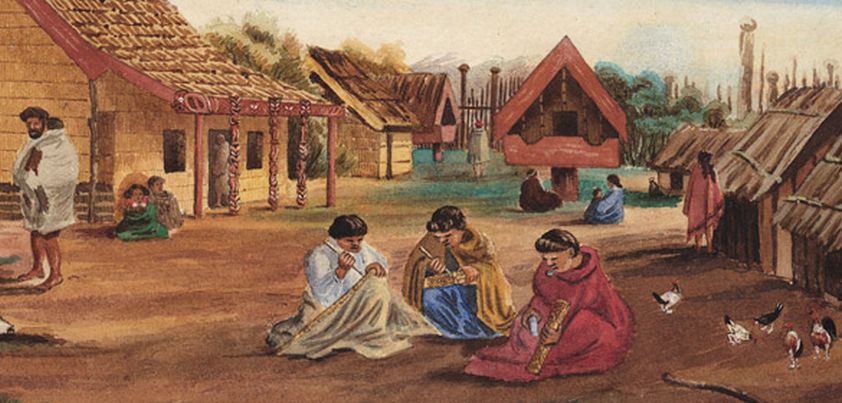 This early story by Witi Ihimaera examines the universal themes of love, family, community and mortality from a Maori perspective. A university student visiting his dying grandmother symbolizes the deep family connections among his people. The old woman’s only recreation over the years has been lively card nights with friends and neighbors. These symbolize the strong connection and, despite some good-natured cheating, unity among community members. The spontaneous gathering in her final hours demonstrates her community’s approach to death. Rather than shying away until after the event, they come together to pay respects and ease her passing.
This early story by Witi Ihimaera examines the universal themes of love, family, community and mortality from a Maori perspective. A university student visiting his dying grandmother symbolizes the deep family connections among his people. The old woman’s only recreation over the years has been lively card nights with friends and neighbors. These symbolize the strong connection and, despite some good-natured cheating, unity among community members. The spontaneous gathering in her final hours demonstrates her community’s approach to death. Rather than shying away until after the event, they come together to pay respects and ease her passing.
The above comments relate to the story as it appeared in the original (1972) edition of Ihimaera’s first book, Pounamu Pounamu. Ihimaera is known for occasionally rewriting his work, and a revised version of the story appeared in the book’s (2012) 40th Anniversary Edition. The Moari word pounamu means “greenstone” or “jade” and, according to Ihimaera, over subsequent years he saw that the light refracted just a little differently and he was able to see more of the roimata toroa, the tears, that are in the jade. We have included links to both versions below.
Original Text / PDF (1,850 words)
2012 Revised Text / PDF (3,000 words)
In addition to some quaint cultural updates (Maori men no longer kiss their teenage sons and their wives don’t smoke as much), the 2012 version of the story builds on the themes of matriarchy, change, cultural heritage, wisdom and hope.
Among the changes is this observation and question from Miro: ‘It’s always the women who look after the land,’ she said, ‘but who will do it after I am gone?’ The old woman sees her death as a turning point that could lead to loss of their family heritage, and she is looking to her educated grandson to preserve it. This message is reinforced in the two Maori verses added at the end of the story.
The first, Ma wai ra e taurima E te marae i waho nei?, comes from a traditional Maori funeral lament. It translates: Who will tend to the marae now? A marae is a communal and sacred Maori meeting place. In this instance it presumably refers to ‘Miro’s Museum’, which houses the extended family’s prized possessions, and the tribal lands around it.
The second verse, Whaia te iti kahurangi, Me te tuohu, he tuohu Ki te maunga teitei, is a Maori proverb which translates: Seek the treasure you value most dearly: if you bow your head, let it be to a lofty mountain. Generally accepted as emphasizing the importance of setting goals and striving to pursue one’s destiny, Ihimaera is presumably sending a message to all Maori youth here, rather just the young man in the story.